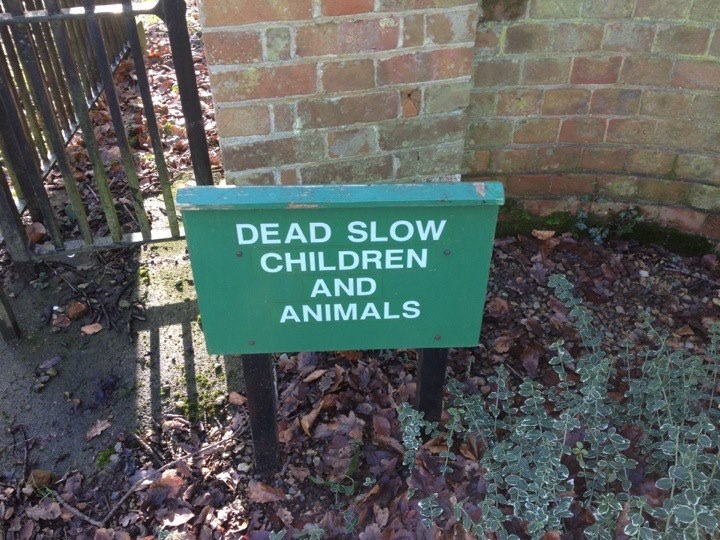Assuming that ending punctuation (question, exclamation, or period) do not matter, and only commas are used, there are four places to insert a comma and leave one out. So the upper bound on the orthographic variations is sixteen, not all of which make sense. Let's forget about inserting commas and look at syntax.
First the possible phrase structures of the entire thing as a single noun phrase:
((dead slow) children) and animals. {Children dead slow; animals unqualified}
(dead (slow (children))) and animals. {Children dead and slow; animals unqualified}
(dead slow) (children and animals). {Children and animals are dead slow}
dead (slow (children and animals)). {Children and animals are dead, and slow}
dead ((slow children) and animals). {Slow children are dead; animals are dead, but not slow}
The intended meaning is a pair of sentences, from which words are elided for brevity. The first is an imperative, and the second a statement which gives a reason. But there are several ways possibilities for this, depending on which elided words we put back and where we break it into two sentences:
Go dead slow, there are children and animals.
Go dead slow, children! And you too, animals.
Go dead slow, all you children and animals.
The word dead can be a sentence, lamenting the passing of a person or animal, which adds two more possibilities:
Dead! These slow (children and animals)!
Dead! These (slow children), and animals!
So there are at least ten interpretations, though you might have a quibble whether these last two are meaningfully distinct from some of the earlier noun phrases. If you regard questions as being semantically different, that adds to the possibilities, too.

